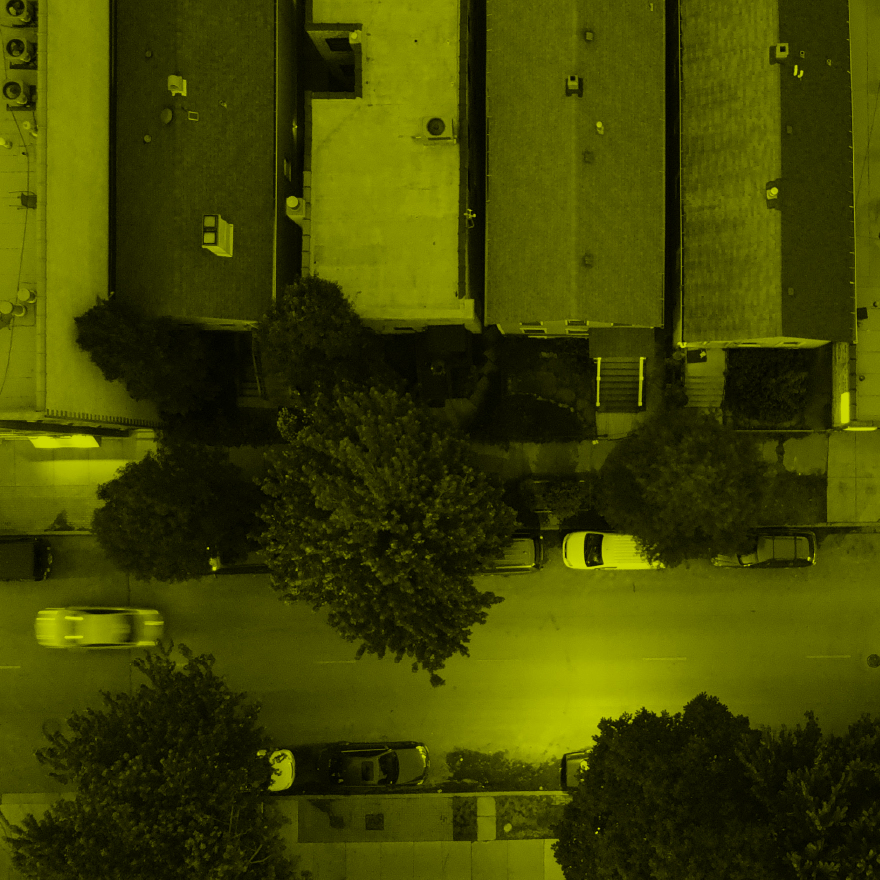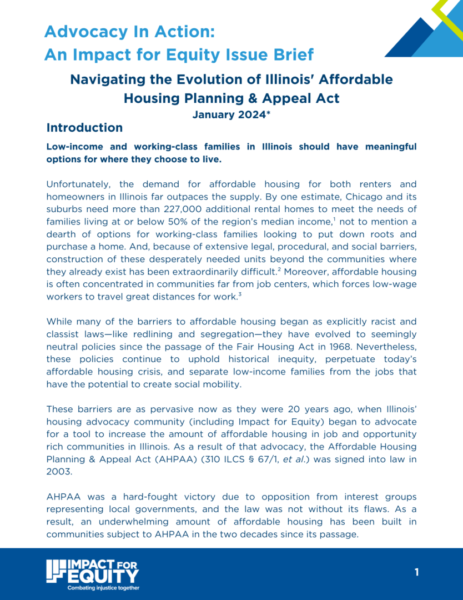
Housing
Impact for Equity has been deeply committed to housing and community development for over fifty years. Our legal and policy advocacy focuses on removing barriers and promoting housing choice across the Chicago region, including families living in or seeking subsidized or other affordable housing. We work to expand options, increase access to public and affordable housing, and promote investment in neighborhoods that already have those resources.
Our housing work includes a focus on public housing in Chicago, a county-wide economic mobility program in Chicago and Cook County, and efforts to expand affordable housing in the Chicago metropolitan region.
Read About our FIGHT FOR FAIR HOUSING: A SUMMARY OF GAUTREAUX V. CHICAGO HOUSING AUTHORITY
Impact for Equity’s summary of Gautreaux v. Chicago Housing Authority reflects on our role as attorneys for public housing residents and applicants challenging race discrimination in Chicago Housing Authority’s public housing construction and resident assignment policies. Learn how the Gautreaux lawsuit has reshaped public housing in Chicago over the last five decades and how the work to address segregation and promote affordable housing in Chicago continues today.
Read our ISSUE BRIEF: AFFORDABLE HOUSING PLANNING AND APPEAL ACT
Impact for Equity’s first issue brief of 2024 explains how the Affordable Housing Planning and Appeal Act (AHPAA) works and chronicles the law’s history over the past 20 years. AHPAA is Illinois’ one statewide law that is solely focused on encouraging and requiring local governments to preserve and create affordable housing—for both renters and homebuyers. The issue brief includes a brief evaluation of AHPAA’s effectiveness over the last two decades and predicts how recent amendments will impact the 44 Illinois communities now subject to the law.
Read our building On Opportunity report
Impact for Equity published Building on Opportunity, a report that takes a deep dive into six of the approximately twelve CHA mixed income sites. The site profiles represent different communities with CHA owned land and highlight some of the unique challenges and existing opportunities to rapidly increase housing production and deliver long-term benefits to communities across the City. The six profiled sites have approximately 110 acres of vacant land and an additional 22 acres of land with vacant buildings.




